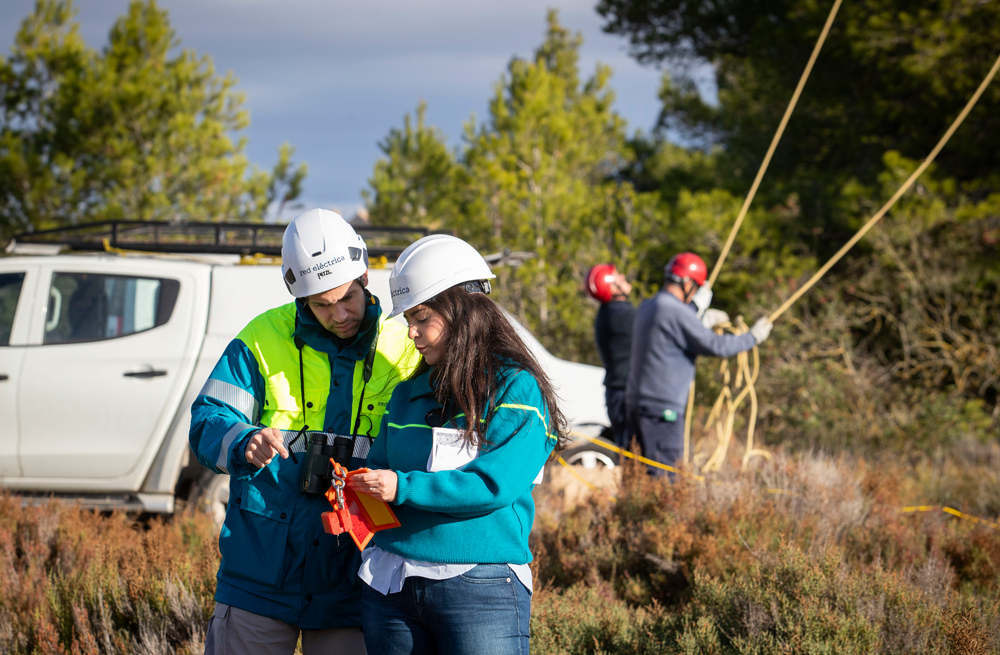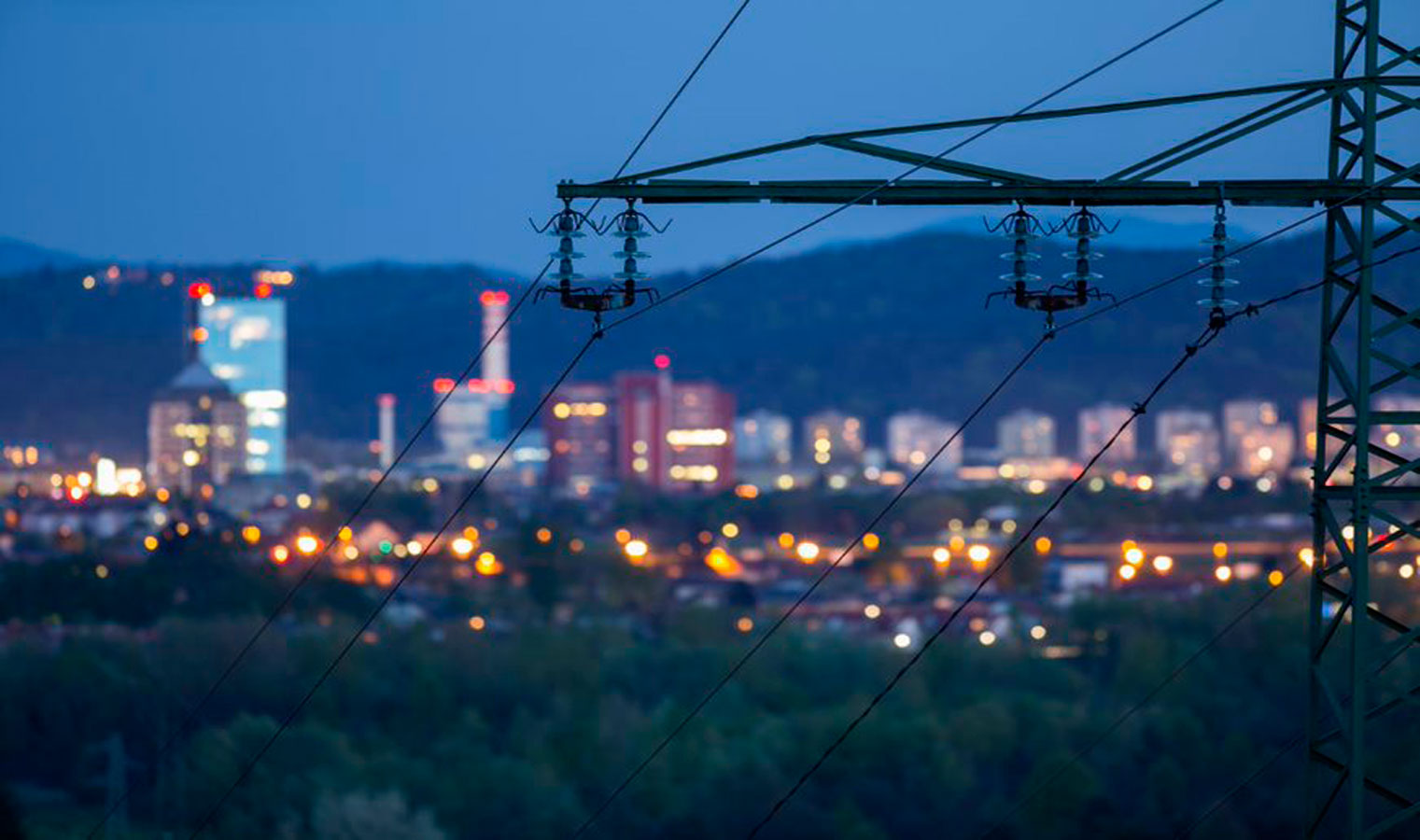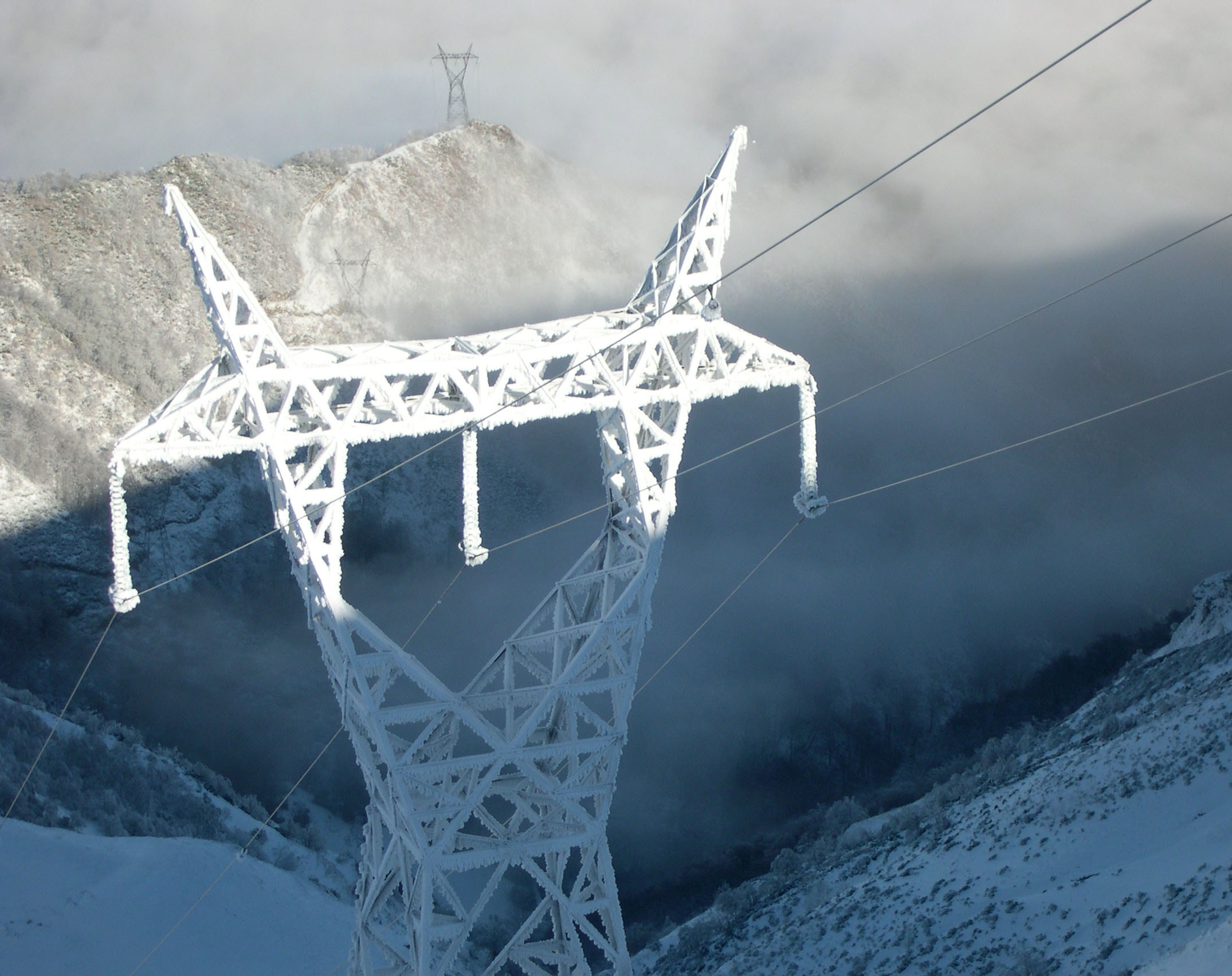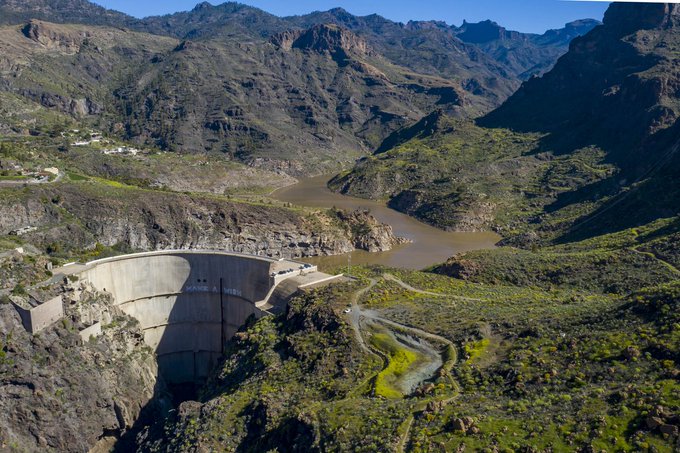Discover what Red Eléctrica is, what we do, and why we are the backbone of the electricity system in Spain and the ecological transition.
Public-private collaboration brings two new bearded vultures to Picos de Europa
- Lesly and Europa, born and raised in Ordesa, will live for a month on an acclimatisation platform until they are fully developed and ready to fly.
- The Bearded Vulture Conservation Foundation is responsible for the recovery of this endangered species within the framework of a transnational project.
- Red Eléctrica contributes to the conservation of this bird by signalling the lines located in its main habitats: Picos de Europa, Pyrenees, El Maestrazgo, and the Sierra de Cazorla.
- Today's initiative is part of LIFE Pro Bearded Vulture, a transnational project co-financed by the European Union and shared by the VCF, the Ministry for Ecological Transition and Demographic Challenge, and the Associação Naturaleza y Hombre of Portugal.
Picos de Europa National Park has now two more bearded vultures: Lesly and Europa, who are around three months old. The Bearded Vulture Conservation Foundation (VCF) has been caring for them and transferred them from the National Parks of Ordesa and Monte Perdido (Huesca) after being released by the Government of Aragon for their breeding and release into the wild. This species disappeared from Picos de Europa in 1956. The first new specimens were reintroduced in 2010, and the first successful breeding took place in 2020.
After a veterinary check-up, VCF has placed Lesly and Europa on a platform or adaptive hacking, in which they will acclimatise to the environment for a month until they have completed their development. They will then be released and become part of the wild species' stock in Picos de Europa, where 28 specimens are currently living.
“The arrival of these two chicks in Picos de Europa is the result of decades of commitment from numerous public and private agents who are making a great effort to reintroduce the species and mitigate the threats endangering this species", explained Gerardo Báguena, vice president of VCF, during the ceremony to welcome the two specimens. This organisation has been working for more than 20 years to restore the population in collaboration with the park's environmental authorities, the three autonomous communities managing the park, and the support of public and private funds.
The event was attended by Beatriz Corredor, president of Redeia, a group which collaborates with VCF as part of its commitment to protect birdlife, especially through its subsidiary Red Eléctrica, the company responsible for the transmission and operation of the electricity system in Spain. "For Red Eléctrica, it is a priority to ensure that the transmission grid and birds coexist in harmony. Therefore, when we design the lines, we avoid areas where birds are present and where they fly. And when this is not feasible, we install bird guards in order to make them more visible and avoid accidents", pointed out Corredor.
This year, Red Eléctrica is implementing a special plan for the bearded vulture, which involves marking 160 kilometres of lines that run through the areas where this bird mainly lives: Picos de Europa, Pyrenees, El Maestrazgo, and Sierra de Cazorla. Furthermore, it is marking another 46 km of lines in areas with a critical risk for birdlife in the Principality of Asturias, Aragon, Cantabria, La Rioja, Navarre, and the province of León.
The event was also attended by representatives of Picos de Europa National Park, the chief lieutenant of UPRONA, Francisco Lavandera; the head of the Wildlife Service of the Principality of Asturias, Miguel Diez; the president of the Brown Bear Foundation, Guillermo Palomero; the president of the Nature and Human Being Foundation, Carlos Sánchez; and the manager of the Global Nature Foundation, Eduardo de Miguel.
This action is part of the LIFE Pro Bearded Vulture (LIFE 20 NAT/ES/001363), a transnational project co-financed by the European Union and shared by the VCF, the Ministry for Ecological Transition and Demographic Challenge of the Government of Spain, and the Associação Naturaleza y Hombre of Portugal (ANYH).
Downloads










